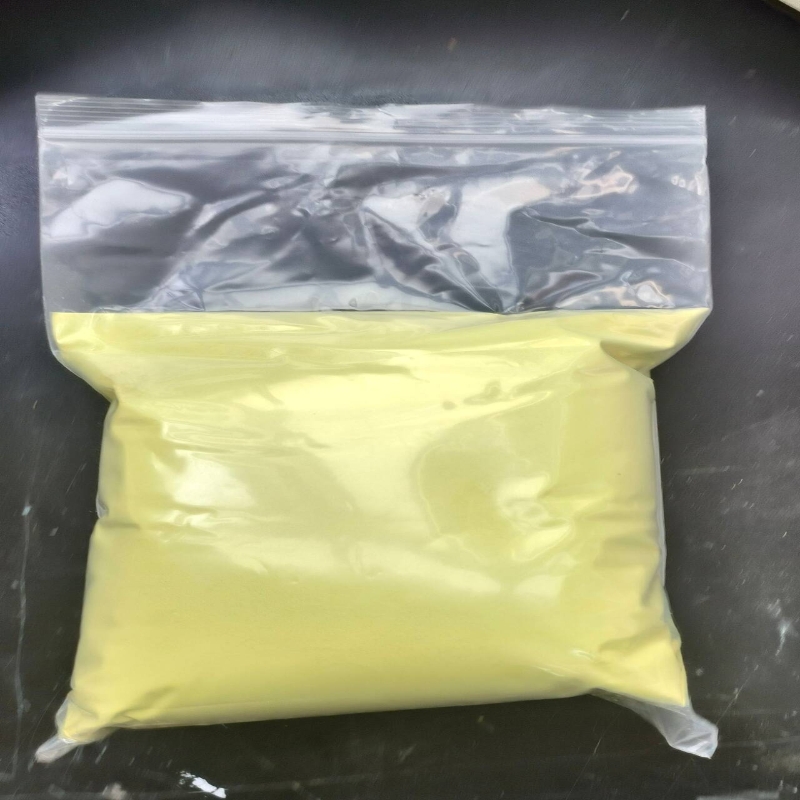Rootpath, a biotech company, has completed round a financing of 11 million US dollars!
-
Last Update: 2020-01-06
-
Source: Internet
-
Author: User
Search more information of high quality chemicals, good prices and reliable suppliers, visit
www.echemi.com
Original: Cao Xian Recently, aoya.com learned that rootpath, a biotechnology company, has completed a round a financing of 11 million US dollars jointly led by Jingwei China and Yuanhe origin Rootpath is committed to making use of its unique synthetic immunology platform to build the next generation of tumor reactive T cell therapy technology The company will use the funds raised in this round to verify its tumor reactive T cell receptor (TCR) discovery process, demonstrate its safety and effectiveness in animal models, and lay a technical foundation for the production process Already, investors such as Sequoia China, volcanic rock capital, Chaosheng capital and Baidu venture capital also participated in this round of financing Rootpath was founded in 2017 by nest Bio ventures Its core technology, synthetic immunology platform, includes a series of unique technologies, which can be used to reconstruct T-cell immunohistone library quickly and cheaply in vitro, and simulate the evolution process guided by its antigen This platform is the foundation of the next generation, individualized and tumor reactive T cell therapy that the company is promoting Among the existing innovative tumor therapies, car-t and tcr-t cell therapies have attracted much attention From the development path of tumor drugs from small molecules and macromolecules to cell therapy, cell therapy can achieve some characteristics that other drug therapy cannot achieve Taking car-t as an example, car-t cells that are transfused back into the body after gene transformation can form long-term memory in the body When cancer cells come back, they will divide and expand again, attack cancer cells, and will not disappear with drug metabolism However, one of the difficulties of car-t in solid tumors is that car-t can only recognize membrane surface proteins However, there are only hundreds of extracellular proteins that may be used as therapeutic targets, in which it is difficult to find proteins that only exist in tumor tissues and are not expressed in normal cells Therefore, from the perspective of target selection, car-t therapy has great resistance in solid tumor treatment Tcr-t can recognize antigens in cells, and has more space for target selection However, the pain point of tcr-t therapy is that the antigens recognized by TCR need to be presented by MHC There are many kinds of MHC in human body, and the expression of antigens in different individuals is also different Traditional tcr-t R & D enterprises often choose to use a single TCR to identify a fixed single target However, the disadvantage of this method is that tumor cells may evade the attack of immune system by down regulating the expression of antigen or MHC Therefore, for tcr-t to succeed, it is necessary to build a large TCR library or screen specific TCR for different patients Using the existing technology, these two schemes will cost a lot of manpower, time and cost, and have high difficulty in research and approval Til (tumor infiltrating lymphocyte) cell therapy is another highly differentiated, customized and targeted immunotherapy, which is not genetically modified cell therapy The tumor tissue obtained by operation can be digested into single cells by enzyme These single cells include not only tumor cells, but also a small number of T cells and other immune cells The core assumption of TIL therapy is that there must be a part of T cell population in tumor tissue that can recognize tumor cells Therefore, after the T cells in tumor tissue are expanded and infused back into the patient, it may effectively attack the tumor There are also many bottlenecks in til therapy At present, the success of TIL therapy is limited to melanoma, cervical cancer and other tumors with high immunogenicity Til treatment has a very low response rate in lung cancer, breast cancer, colorectal cancer, ovarian cancer and other tumors with medium or low immunogenicity Now the industry consensus is: "in these tumors with low immunogenicity, the proportion of T cells in til that can specifically recognize tumor cells is very small, probably only one thousandth to one percent." Therefore, even if til is amplified, the proportion of T cells that can recognize tumor is very low, so it can not get good curative effect.
This article is an English version of an article which is originally in the Chinese language on echemi.com and is provided for information purposes only.
This website makes no representation or warranty of any kind, either expressed or implied, as to the accuracy, completeness ownership or reliability of
the article or any translations thereof. If you have any concerns or complaints relating to the article, please send an email, providing a detailed
description of the concern or complaint, to
service@echemi.com. A staff member will contact you within 5 working days. Once verified, infringing content
will be removed immediately.




![2-(Hydroxymethyl)benzo[b]thiophene](https://file.echemi.com/fileManage/upload/cas/593/e79a972f-b55d-4dc1-9113-841c417e0a89.png)


